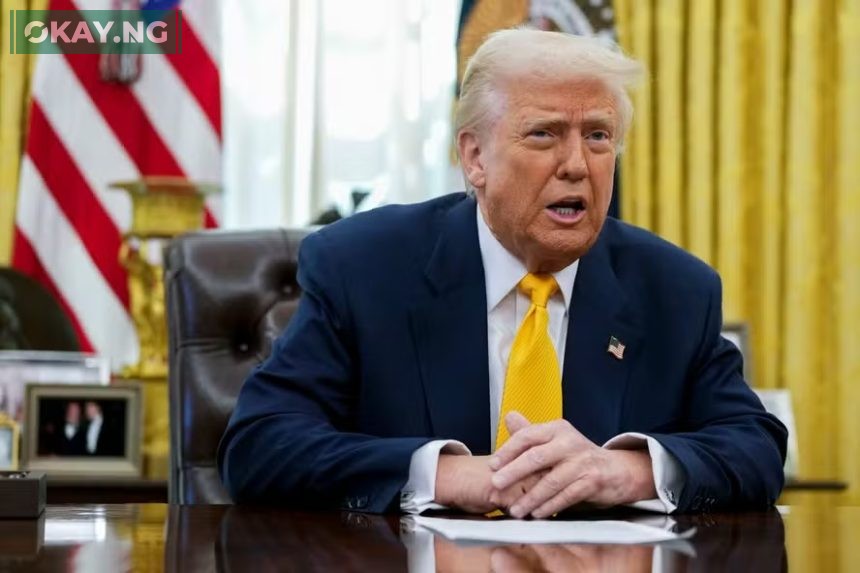A new wave of “reciprocal tariffs” implemented by the United States is poised to reshape global trade dynamics, with significant implications for nations like Nigeria. The policy, enacted on Wednesday, aims to address what the U.S. President termed unfair trade practices, marking what he described as a “liberation day.”
The centerpiece of this action is a set of tariffs designed to mirror, approximately, the duties imposed on American goods by other countries. Notably, Nigeria will face a 14% tariff on its exports to the U.S., contrasting with the 27% tariff Nigeria currently applies to American imports. This alteration, as presented in a chart provided by President Trump, targets an existing trade balance where Nigeria exported N931 billion worth of goods, largely crude oil, to the U.S. in the preceding year while importing N1.05 trillion.
Beyond Nigeria, the tariffs’ reach extends globally. China, which faces a 34% tariff, designed to counter the existing 67% tariff China places on U.S. goods, according to that same White House chart. Other nations facing new tariffs include the European Union at 20%, Vietnam at 46%, Taiwan at 32%, Japan at 24%, India at 26%, South Korea at 25%, Thailand at 36%, and Cambodia at 49%.
Two executive orders accompanied the announcement. One order closes the “de minimus loophole” affecting Chinese exports, and the other implements the “reciprocal tariffs,” including a 25% tariff on imported cars and varying tariffs, from 10% to 49%, on other goods.
While these measures were portrayed as a path to “make America wealthy again” and stimulate “6 trillion in investments,” economic experts raise concerns. “Tariffs, ultimately, are paid by American businesses and consumers,” a common concern from those who follow economic policy. “This creates a substantial tax burden,” they argue.
Read Also: Trump’s “Liberation Day” Tariffs: Global Scope Sparks Economic Concerns
The European Union, set to face 20% tariffs, has deferred its formal response until the European Commission President, Ursula von der Leyen, issues a statement. The implications for international trade and economic stability remain a pressing concern, as nations assess their response to this unilateral action.
As I analyze this situation, it is evident that such actions may have cascading effects, impacting supply chains and potentially raising consumer prices globally. The ripple effects on Nigeria’s economy, heavily reliant on crude oil exports, and its trade relationship with the U.S. merits close observation. The impact these policies will have on the daily lives of consumers globally is yet to be realized, however, it is certainly something to pay close attention to.













